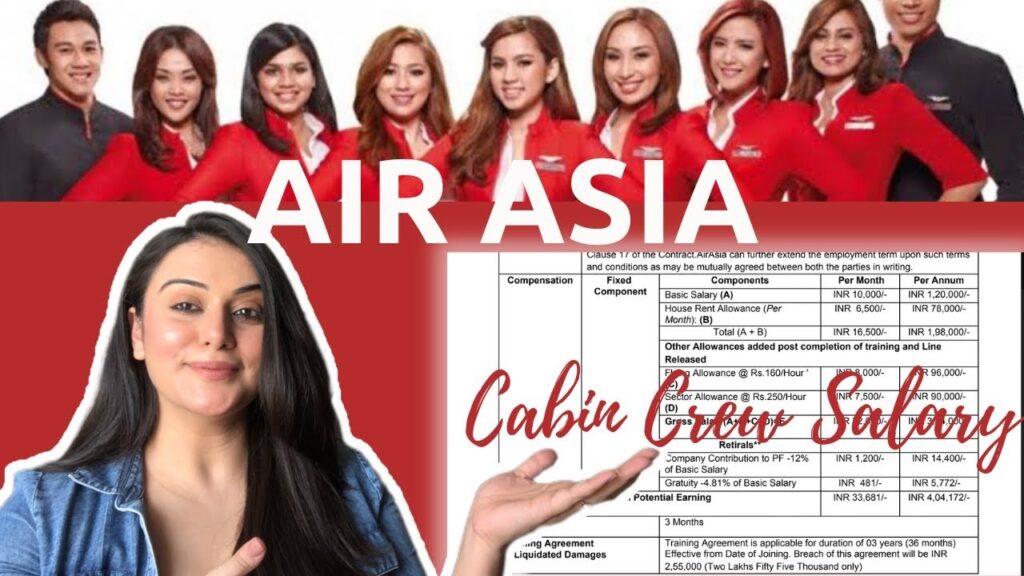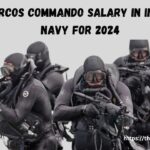The compensation of a CEO, especially one at the helm of a major airline like AirAsia, is a subject of great interest. With AirAsia being one of the largest and most recognized low-cost airlines in Asia, the responsibilities and leadership required to steer the company are enormous. The salary of its CEO reflects not just the scale of the business, but the challenges and successes associated with running such a prominent organization.
In this article, we will break down the various components of AirAsia’s CEO salary, compare it with other industry leaders, explore the perks and bonuses that come with the job, and discuss the responsibilities that justify such a compensation package.
Table of Contents
Who is the CEO of AirAsia: Air Asia CEO Salary
Before diving into the specifics of the salary, it’s essential to understand the role and background of the current CEO. The current CEO of AirAsia (as of 2024) is Tony Fernandes, a well-known figure in the aviation industry. Fernandes, together with his business partner Kamarudin Meranun, co-founded AirAsia in 2001 after buying the then-struggling airline for a token sum of 1 Malaysian Ringgit (approximately $0.26).
Fernandes has played a pivotal role in turning AirAsia into a major player in the aviation market, consistently advocating for affordable air travel in Asia. Under his leadership, AirAsia grew from a two-plane operation into one of the most successful low-cost airlines globally, earning a solid reputation for its efficiency and affordability.
Now that we’ve established the background, let’s explore the various components of a CEO’s compensation package.
Components of a CEO’s Compensation
When discussing CEO salaries, it’s important to note that a compensation package usually includes more than just a base salary. CEOs are often rewarded through various incentives, bonuses, stock options, and other perks. Here’s a breakdown of the typical components of a CEO’s compensation:
1. Base Salary
The base salary is the fixed annual payment that the CEO receives for performing their day-to-day duties. This amount is generally agreed upon in the CEO’s contract and is subject to annual reviews and adjustments based on the company’s performance and market conditions.
For Tony Fernandes, his base salary over the years has fluctuated in accordance with AirAsia’s financial success and the airline industry’s volatile nature. As of the latest available reports, Fernandes’ base salary is estimated to be around $1 million to $1.5 million annually.
2. Bonuses and Performance-Based Incentives
One of the major components of a CEO’s salary is performance-based bonuses. These bonuses are typically tied to specific metrics such as profitability, stock performance, and other key performance indicators (KPIs) that align with the company’s goals. If the airline hits its revenue or profit targets, or if the stock price appreciates significantly, the CEO is rewarded with substantial bonuses.
For instance, during profitable years when AirAsia experienced strong growth and expansion, Tony Fernandes was awarded hefty performance bonuses. These bonuses could range from $500,000 to $2 million, depending on how well the company performed in any given year.
3. Stock Options and Equity Compensation
Another significant portion of a CEO’s compensation comes in the form of stock options or equity compensation. This provides the CEO with the opportunity to purchase company shares at a predetermined price, usually below market value. It acts as a strong incentive for the CEO to improve the company’s long-term value, as the higher the stock price goes, the more valuable the stock options become.
Over the years, Fernandes has received substantial stock options as part of his compensation package. His equity compensation has further aligned his interests with the shareholders, ensuring that he remains focused on driving AirAsia’s growth and success.
4. Perks and Other Benefits
In addition to salary and bonuses, CEOs of major corporations like AirAsia are entitled to various perks. These perks can include:
- Travel allowances: As the CEO of an airline, Tony Fernandes likely has access to free or discounted travel, both for himself and his family.
- Executive health plans: Comprehensive health coverage is usually provided to top executives, ensuring they receive premium medical care.
- Retirement plans: AirAsia may contribute to Fernandes’ retirement savings, either through a pension plan or a 401(k) equivalent.
- Use of company resources: CEOs often have access to company-provided assets such as cars, personal assistants, security services, and more.
5. Severance and Retirement Packages
CEOs also often receive severance packages if they are let go from their position. These “golden parachutes” can include large lump-sum payouts, continuation of benefits, or stock option vesting. While Tony Fernandes continues to serve as CEO, it’s expected that if he were to retire or leave the company, his severance package would be substantial, likely running into the millions.
How Does AirAsia CEO’s Salary Compare with Other Airline CEOs?
Comparing Fernandes’ salary with other airline CEOs offers a broader context of how his compensation aligns with industry standards.
Salary Comparison Across the Airline Industry
- Doug Parker (American Airlines)
Doug Parker, the former CEO of American Airlines, earned a base salary of around $1.3 million. However, with bonuses, stock options, and other incentives, his total compensation package reached upwards of $10 million annually. - Ed Bastian (Delta Airlines)
Delta’s CEO, Ed Bastian, had a base salary of approximately $1.4 million. Including bonuses, stock options, and other compensation, Bastian’s total earnings have often been in the range of $13 million to $17 million annually. - Michael O’Leary (Ryanair)
Ryanair, another major low-cost airline, is often compared to AirAsia. Its CEO, Michael O’Leary, earned a base salary of about €1 million (approximately $1.1 million). However, his total compensation, including bonuses and stock options, reached over €10 million (approximately $11.5 million) in profitable years.
When comparing these figures, Tony Fernandes’ salary is competitive, especially considering the size and market position of AirAsia in the Southeast Asian and broader Asian markets.
The Role and Responsibilities of AirAsia’s CEO
Now that we have a better understanding of the salary structure, let’s delve into the responsibilities that justify such compensation. As the CEO of AirAsia, Tony Fernandes oversees a wide range of functions, from strategic planning to daily operations. Here are some of the key responsibilities:
1. Strategic Direction and Vision
Fernandes is responsible for setting the strategic vision of the company, ensuring that AirAsia remains competitive in the dynamic and challenging airline industry. His leadership has been instrumental in expanding AirAsia’s footprint across the region and launching new routes to cater to the growing demand for affordable air travel.
2. Financial Performance
The CEO must ensure that the airline operates profitably. This involves working closely with the CFO and other key executives to manage costs, maximize revenue, and ensure that the airline remains financially stable, even during challenging times like economic downturns or global pandemics.
3. Crisis Management
Running an airline comes with its share of crises, from operational issues like flight delays to larger global challenges such as the COVID-19 pandemic. As CEO, Fernandes has had to navigate through several crises during his tenure, making critical decisions to ensure the survival and recovery of the airline.
4. Innovation and Customer Experience
Fernandes has been a driving force behind AirAsia’s innovations, particularly in the digital space. He has been instrumental in the company’s digital transformation, turning AirAsia into more than just an airline by offering services such as e-commerce, logistics, and fintech.
5. Leadership and Team Management
Leading a massive organization like AirAsia requires exceptional leadership skills. Fernandes oversees a team of thousands of employees, ranging from flight crews to executives, and ensures that they work in harmony to deliver a seamless travel experience for customers.
Conclusion
The salary of the CEO of AirAsia, Tony Fernandes, is a reflection of the scale of the airline and the complex responsibilities that come with leading such an organization. His base salary, combined with bonuses, stock options, and perks, positions him among the top-earning executives in the airline industry. However, his compensation is not just about the money—it reflects his role in transforming AirAsia into a dominant player in the global aviation market.
Running a company of AirAsia’s size and complexity is no easy task. The compensation package serves as a reward for the leadership, innovation, and resilience that Tony Fernandes has demonstrated throughout his career.


